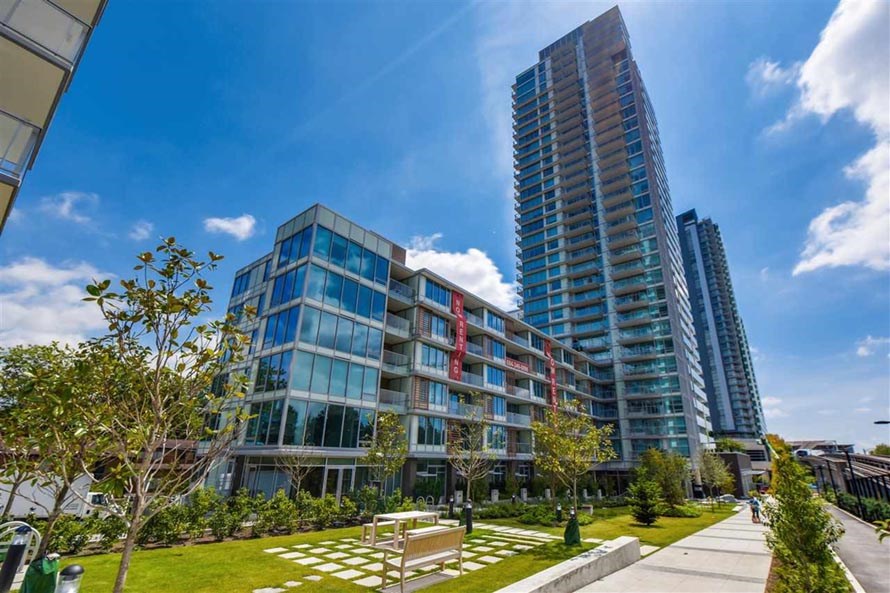One of the first purpose-built rental properties to sell in a forward sale in Â鶹´«Ă˝Ół»during the current surge in rental construction has come forward again.
Mayfair Properties Ltd. is selling MC2, which it bought from Intracorp Projects Ltd. in 2013, before it was completed, for $26.8 million.Â
The finished tower was listed in January for $54 million.
The Goodman team at HQ Commercial Real Estate Services brokered the original sale of the 110-unit tower and is handling its latest listing. Â
“It’s been a very successful project from a lease-up perspective,” Mark Goodman said when he acquired the listing in December.
“There was very little precedent at the time for modernized new suites with dishwasher and laundry in a part of town that hadn’t really been developed.”
The project’s success has paid off for Mayfair, supporting a doubling of what it paid, and then some,
“It was a big price when they paid,” Goodman said. “They took the risk and now, fast-forward, very positive things have happened.”
Goodman closed in January on the sale of another purpose-built rental tower, a 282-unit tower in New Westminster that sold for $90 million, or more than $319,000 per suite.
The spectacular price increases would seem to encourage more developers to consider building rentals, rather than condos, as pure speculation, especially since most Metro municipalities will allow higher density for purpose-built projects than for strata buildings.
But Goodman said Â鶹´«Ă˝Ół»developers make more money on condominium projects, even when marketing and other costs are considered.
According the Urban Development Institute, new Â鶹´«Ă˝Ół»condominium prices now average more than $1,200 per square foot, which translates into a 500 square-foot condo price of at least $600,000.Â
By comparison, the average price for a Â鶹´«Ă˝Ół»multi-family rental building in 2017 was $535,000 per door, according to preliminary year-end data from the Goodman Report.
In MC2's case, the price penciled to $490,900 per rental suite.Â
Renter’s viewÂ
While a boon to developers, all this is not necessarily positive for renters, of course: vacancies in Â鶹´«Ă˝Ół»rental apartments remain low despite new construction, and rents continue to increase.Â
Average MC2 monthly rents run from $1,430 for studios and one-bedrooms to $2,338 for two-bedrooms. This compares with the city of Â鶹´«Ă˝Ół»average, Canada Mortgage and Housing Corp. (CMHC) reports, of $1,388 a month for leased units and $1,547 a month for vacant and available units.

Rents for units at MC2 listed with Airbnb Inc. are significantly higher than those in the rental market, beginning at $118 a night. The rental search engine PadMapper pegs the monthly rent at $3,403.
Whether or not the rental is legal is another question, of course. Despite city efforts to bring units listed with Airbnb into compliance, the presence of such units creates headaches for landlords and strata property managers.
To address the issue, Vancouver-based Bazinga Technologies Inc. hopes to announce a partnership with Airbnb this spring that will give strata corporations a better sense of what’s going in their buildings and even to reap a benefit from the presence of the units through a share of booking fees.
“We’re working on a really cool product that we think will be a potential solution,” said Joseph Nakhla, CEO of Bazinga. “It’s basically allowing stratas to manage the buildings with a bit more transparency and understanding of how much Airbnb activity is affecting the building.”
The new tool will require a data-sharing agreement allowing Bazinga to access Airbnb’s data and share it with building owners, its raison d’être.
Bazinga provides software that facilitates communications within strata corporations. Started in 2012, it went national in 2014 through a partnership with Toronto homebuilder Tridel Corp. It now works with 2,000 communities representing 130,000 units.
A deal with Airbnb would be the latest expansion for Bazinga, which last summer began acquiring property managers to work directly with strata corporations.
Bazinga acquired the property management arm of Peterson Group in April 2017, rebranding it Tribe. Tribe now manages 5,000 units in B.C. and is negotiating two more acquisitions that are scheduled to close in early 2018, boosting its units under management to more than 15,000.
Lagging starts
Â鶹´«Ă˝Ół»closed 2017 with promises of great advancements in affordable housing, including rentals. Yet as the year closed, starts lagged behind 2016 by nearly half.
CMHC figures indicate 1,717 rental starts in the city of Â鶹´«Ă˝Ół»in 2017’s first 11 months, down from 3,245 in all of 2016. Hardest hit were non-market units, with just 31 units started versus 414 in 2016.
Regionally, 4,328 rental units were launched across Metro Â鶹´«Ă˝Ół»in 2017’s first 11 months, down from 6,841 in all of 2016. Of these, 266 were non-market units – about half the 2016 tally of 536.
In comparison, 21,090 new Metro Â鶹´«Ă˝Ół»strata housing units had been registered in 2017 with BC Housing, all of which will likely start this year.Â



